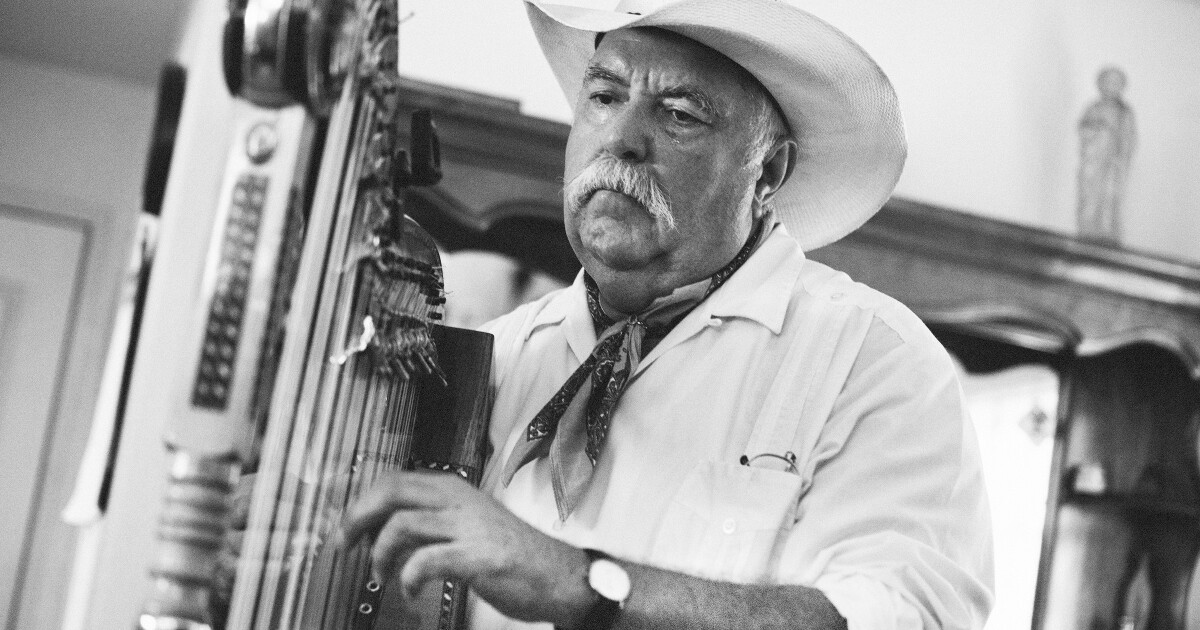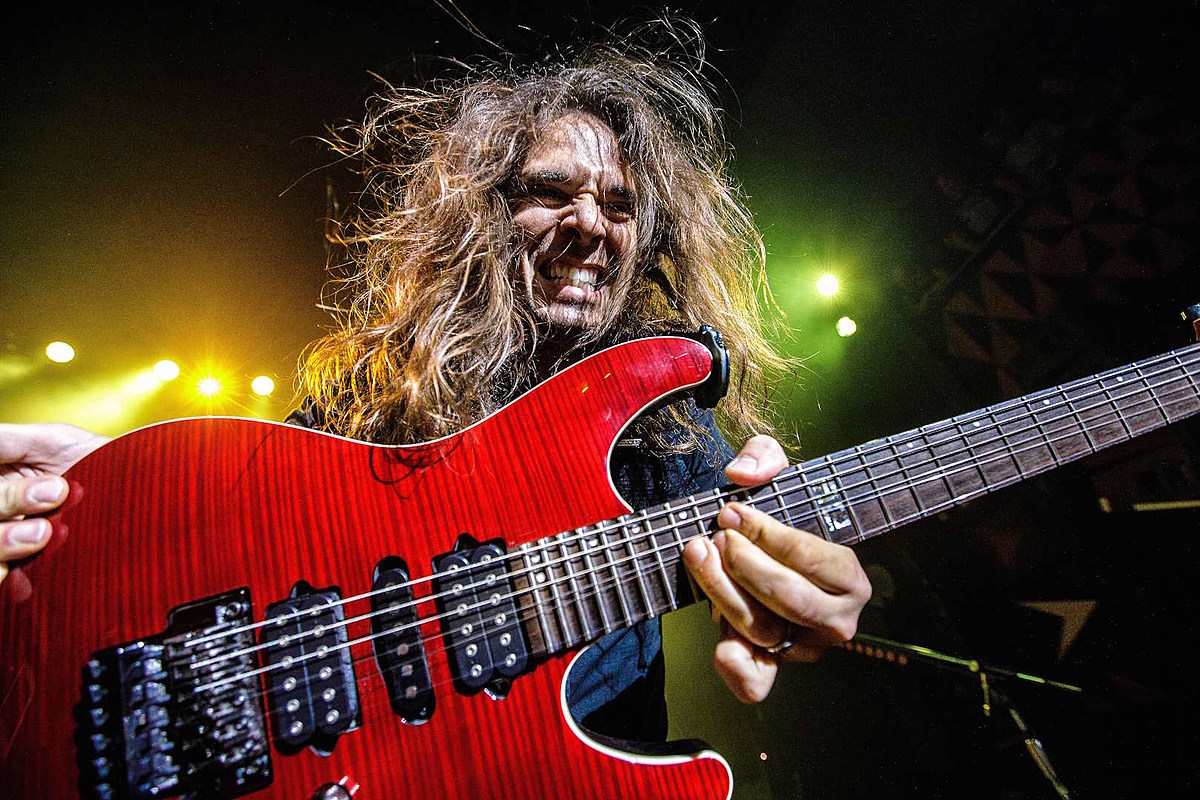Francisco González, Los Lobos founding member, dies at 68

In 1975, KCET aired a half-hour concert showcasing a scorching new community band. As an opening shot of the downtown skyline segued into a slice-of-lifestyle montage of East Los Angeles, a twinkling harp played over a lilting voice as the team done a music in the son jarocho tradition of the Mexican point out of Veracruz.
“We come to feel it is our obligation to spread our tradition to the other people who never know about it,” reported the musician, 22-calendar year-old Francisco González, in a voiceover. The digicam rested on him and his friends jamming on a hill that disregarded the Eastside. “We want to make a true Chicano music that attracts from our earlier, that is in line with the earlier, the existing and ideally the future.”
That band was Los Lobos.
The concert, filmed at East Los Angeles College, is out there in its entirety on YouTube and remains a joyous tour de power. The imposing, extensive-haired, Fu Manchu-sporting González sparkles as the group’s direct singer, emcee and jokester. He alternates amongst harp and mandolin, and finishes the exhibit with a quip that became the slogan of Los Lobos: “Just an additional band from East L.A. Rifa, total.”
González would go away the group inside a 12 months, just in advance of they went on to become the most famed Chicano rock team of them all. But the East L.A. indigenous yet became a musical icon of his personal. He became an apostle for son jarocho, fostering relations amongst jaraneros in the United States and Mexico. He launched solo albums, and done in venues as diverse as faculties and prisons. His handmade strings for Mexico’s spouse and children of guitars — the sonorous requinto, the superior-toned jarana, the deep-bottomed guitarrón, the warm bajo sexto, and other folks — were being lifelines for musicians with no other possibilities in the United States for their devices.
In Mexico, outdated-timers said that González’s handiwork built devices resonate with a audio they hadn’t heard in decades.
“He would usually say, ‘We are gardeners of the seeds of our society. We plant our seeds patiently, and we nurture the vegetation of our culture,’” reported Yolanda Broyles-González, his spouse of 38 many years and chair of the Division of Social Transformation Scientific studies at Kansas State University. The two satisfied soon after González performed in Stuttgart, Germany, in 1980 while he served as musical director for Teatro Campesino and she was in the audience. “For him, the lifestyle of the folks required to flow into freely and not with dollar symptoms hooked up to it.”
“He was our personal Chicano conservatory,” said his son, also named Francisco. “He gave us resources to resist discrimination and injustice and to stand and battle for ourselves, but also to enjoy.”
Suffering from most cancers, González died March 30 . He was 68.
The youngest of seven small children born to Mexican immigrants, González grew up in a musically inclined spouse and children exactly where everyone performed an instrument, and his father was a experienced singer. Identified in his childhood as Frank, he fulfilled future Lobos users Conrad Lozano and David Hidalgo by the rock band circuit that circled close to their alma mater, Garfield Higher.
But when González 1st began to enjoy son jarocho, which he discovered about by way of listening to his sister’s documents, “it was like in ‘The Wizard of Oz’ when it goes from black-and-white to coloration. I wasn’t in Kansas any longer,” he told the biographer of Los Lobos in 2015.
González shortly related with his neighbor Cesar Rosas, and the two co-launched Los Lobos in 1973, bringing in Lozano, Hidalgo and Louie Perez. “We acquired jointly to discover some tracks to play for our mothers, to display them we appreciated the tunes of our lifestyle,” González claimed in his opening monologue for the 1975 KCET unique.
The functionality concluded with a model of the music that would turn out to be a smash hit for the group far more than a ten years later on: the son jarocho common “La Bamba.”
By then, González was prolonged gone from the band, extra interested in sticking with Mexican regional music as a substitute of the fusion among these genres and Us residents seems that his previous bandmates wished to investigate.
“We loved him, male,” Rosas reported. “We have been blessed that we experienced him when we did.”
Just after his stint with Teatro Campesino, which lasted from 1980 to 1984, González settled in Santa Barbara, exactly where Yolanda was a professor.
“He was the most great father on Earth, and the dearest partner conceivable,” explained Broyles-González, creator of a famous biography of Tejano songs legend Lydia Mendoza. “He was generally there for us. He under no circumstances broke our hearts. He was as robust as Gibraltar.”
González taught Chicano theater at Santa Barbara School, and employed that posture to stage performs in the city’s historic presidio centered all-around the Virgin of Guadalupe and pastorelas, the Nativity pantomimes staged in Mexico and the American Southwest for centuries. “Our other Xmas traditions aren’t area,” he instructed The Instances in 1989, when he directed a pastorela at Mission San Fernando. “‘The Nutcracker’ is Russian. Christmas carols are from Europe. We have a tendency to be colonized up to this day.”
Shortly soon after, González — annoyed that he could not uncover very good sufficient strings for his Mexican instruments — opened Guadalupe Custom made Strings in Goleta in 1990, which continues to work less than various possession in East Los Angeles.
“It was the initially time everyone really significantly in this place established to make large-high-quality strings centered on intimate know-how of Mexican songs,” reported Gabriel Tenorio, a guitarist who went on to come to be a partner in Guadalupe Strings Corporation and now operates his possess workshop. “It wasn’t some Italian corporation executing it in the globe they knew. He was doing it in our globe.”
He and other Chicano musicians from throughout the Southwest who performed son jarocho and mariachi would make pilgrimages to González in the course of the 1990s. Tenorio remembered staying astounded at how González’s strings would past for an whole tour, as opposed to just a evening like his competitors.
“He’d inquire us to engage in, and would enjoy your fingers and pay attention,” said Tenorio. “Then he’d talk to us, ‘What are you on the lookout for? What do you want? What do you sense?’ and start off producing strings in front of us. He educated me devoid of dissing me. He taught us all that this new music isn’t a museum piece.”
In addition to his spouse and son, who is a author dependent in Menlo Park, González also is survived by a daughter, Esmeralda Broyles-González, a civil engineer in Phoenix. His final undertaking, a e-book about the background of son jarocho co-penned with his spouse and another professor, will publish this June.
“The heart of the e-book, Francisco labored on it for 10 decades,” Yolanda claimed. “And still he reported, ‘I’m going to set my identify final on the deal with.’ It was never about him.”






